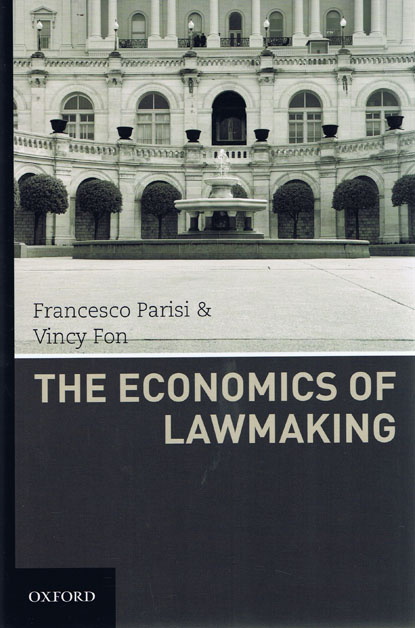We are now closed for the Christmas and New Year period, returning on Monday 5th January 2026. Orders placed during this time will be processed upon our return on 5th January.

The Economics of Lawmaking explores the relative advantages and limits of alternative sources of law. Professors Francesco Parisi and Vincy Fon view the sources of law through a law and economics lens, and consider the important issue of institutional design in lawmaking. They consider the respective advantages and proper scope of application of four fundamental sources of law: legislation, judge-made law, customary law, and international law.
The defining features of these four sources of law are examined using the formal methods of public choice theory: lawmaking through legislation; lawmaking through adjudication; lawmaking through practice; and lawmaking through agreement.
This book begins by examining the sources of law dependent on collective political decision-making, such as legislation. Multiple issues are considered, such as optimal specificity of law, optimal timing of legal intervention and optimal territorial scope of law, and include a thorough discussion on the sources of law derived from judges' decisions, such as common law. Parisi and Fon provide an extensive study on the roles of litigation and judicial path-dependence on judge-made law, biases in the evolution of legal remedies through litigation, and the effect of alternative doctrines of legal precedent, such as stare decisis and jurisprudence constante.
They also consider the customary sources of law, with special attention on the mechanisms that determine their emergence and evolution, and explore sources of law derived from international treaties and conventions.
The Economics of Lawmaking is the first systematic law and economics treatment of this field and will shed new light on the process of lawmaking.